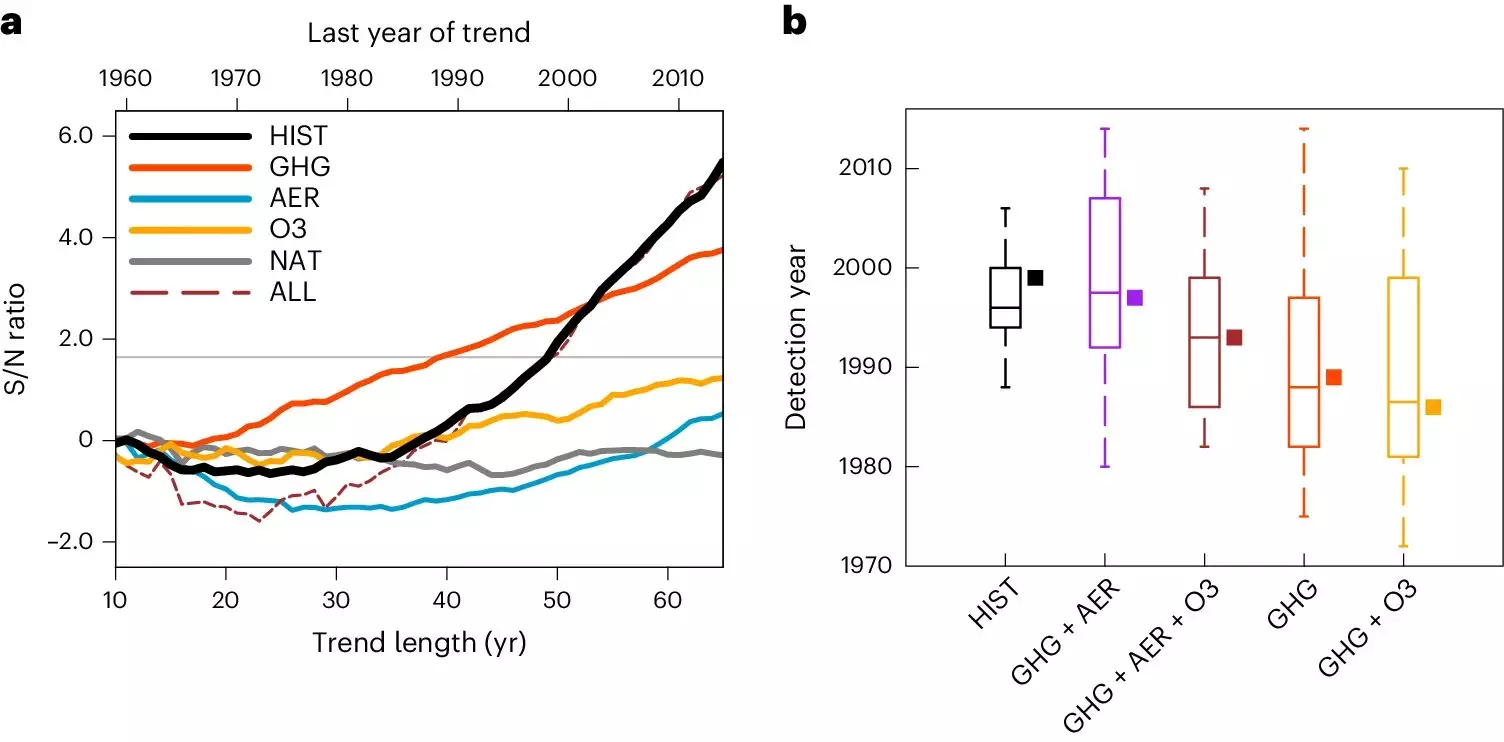Recently, new oceanic research has shed light on the undeniable impact of human activities on climate change. The study has revealed compelling evidence of a human-caused “fingerprint” on sea surface temperatures, altering the seasonal cycle amplitude in significant ways. This breakthrough finding has been hailed as a crucial step in our understanding of the ramifications of global warming on the world’s oceans. The research, conducted by a team of scientists led by Benjamin Santer and Jia-Rui Shi from the Woods Hole Oceanographic Institute (WHOI), has highlighted the urgency of addressing climate change and its profound effects on marine ecosystems.
The Significance of SSTAC Changes
One of the key findings of the study is the identification of specific signals from human activities that have impacted the seasonal cycle amplitude of sea surface temperatures (SST). This signal has emerged from the background noise of natural variability, demonstrating a clear human-caused influence on oceanic climate patterns. Geographical patterns of changes in SST seasonal cycle amplitude (SSTAC) have revealed distinct features, such as an increase at Northern Hemisphere mid-latitudes linked to mixed-layer depth changes, and a robust dipole pattern between 40°S and 55°S primarily driven by surface wind changes.
The research team analyzed data from four different observational data sets of sea surface ocean temperatures, including satellite records and ocean measurements collected by WHOI since 1950. The consistency in findings across these multiple data sources reinforced the conclusion that human activities have significantly altered the SSTAC patterns. The model-predicted pattern of SSTAC change was found to be identifiable with high statistical confidence in various observed SST products and climate model simulations. Greenhouse gas increases were identified as the primary driver of SSTAC changes, accompanied by smaller contributions from anthropogenic aerosol and ozone forcing.
The human fingerprint observed in the seasonal cycle of ocean surface temperature is expected to have far-reaching impacts on marine ecosystems. Changes in SSTAC patterns can affect fisheries, nutrient distribution, and overall ecosystem health. Understanding the anthropogenic influence on seasonality is crucial from scientific, economic, and societal perspectives. Moreover, the rising ocean temperatures, driven by human-induced climate change, pose a significant threat to marine life and the delicate balance of the oceanic environment.
Challenges and Decisions Ahead
The research findings challenge claims that recent temperature changes are natural, emphasizing the profound impact of human activities on oceanic climate change. It is essential to recognize the urgency of addressing climate change seriously and implementing effective measures to mitigate its effects. The ability of the ocean to absorb carbon dioxide, a critical process for regulating global climate, is at risk due to rising temperatures. As oceans absorb more CO2, acidification occurs, potentially disrupting marine ecosystems and threatening biodiversity.
The human “fingerprint” on oceanic climate change is a stark reminder of the urgent need to address global warming and its consequences. The research conducted by the WHOI team provides valuable insights into the impact of human activities on SSTAC patterns and the implications for marine ecosystems. It is crucial for policymakers, scientists, and society as a whole to take concrete actions based on the best available scientific knowledge to combat climate change and protect the world’s oceans for future generations.


Leave a Reply